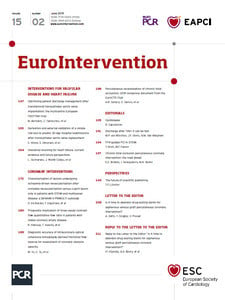We appreciate the interest of Sethi et al1 in our meta-analysis2. Sethi et al argue that there are several issues with the meta-analysis that could lead to the misinterpretation of the findings. First, they suggest that the sensitivity analysis excluding DELAYED RRISC3 showed a possible benefit with drug-eluting stents (DES). While this analysis might be statistically significant, there needs to be a scientific rationale for how a sensitivity analysis is conducted. The usual scenario is to exclude the largest trial and determine if the overall interpretation remains the same. In this case the exclusion of the smallest trial found a positive association; however, it was not consistent with the other sensitivity analyses excluding every other trial. Collectively, one cannot conclude that this sensitivity analysis would challenge the overall conclusion. Second, Sethi et al point out that performing a subgroup analysis by censoring the events at 12 months might yield a strong trend to suggest benefit of DES. However, the interaction within the subgroup analysis performed by Sethi et al is non-significant (p=0.06). In our analysis2, we included the cumulative events at a longer follow-up (i.e., beyond 12 months) rather than just censoring the events at 12 months to include the totality of events4. Importantly, our findings are concurrent with the largest trial to date comparing both devices (i.e., ISAR-CABG) which showed benefit with DES at 12 months5; however, this benefit was lost at five years, which is probably due to the higher attrition of efficacy in the DES group and the expected time-related graft degeneration6. These results are also supported in the recently published DIVA trial, which used contemporary second-generation DES and yet showed no benefit with DES at a median of 2.7 years7. In summary, the findings from our meta-analysis as well as the two large randomised trials on this topic dispute the safety concerns with DES which were seen in the DELAYED RRISC trial3, and suggest that there is no clear benefit for DES (even second-generation DES) over bare metal stents regarding long-term outcomes.
Conflict of interest statement
E. Brilakis reports consulting/speaker honoraria from Abbott Vascular, Amgen, Asahi, CSI, Elsevier, GE Healthcare, and Medicure, research support from Boston Scientific and Osprey, and that his spouse was an employee of Medtronic. A. Bavry discloses the following relationship – honorarium from the American College of Cardiology. The other authors have no conflicts of interest to declare.

